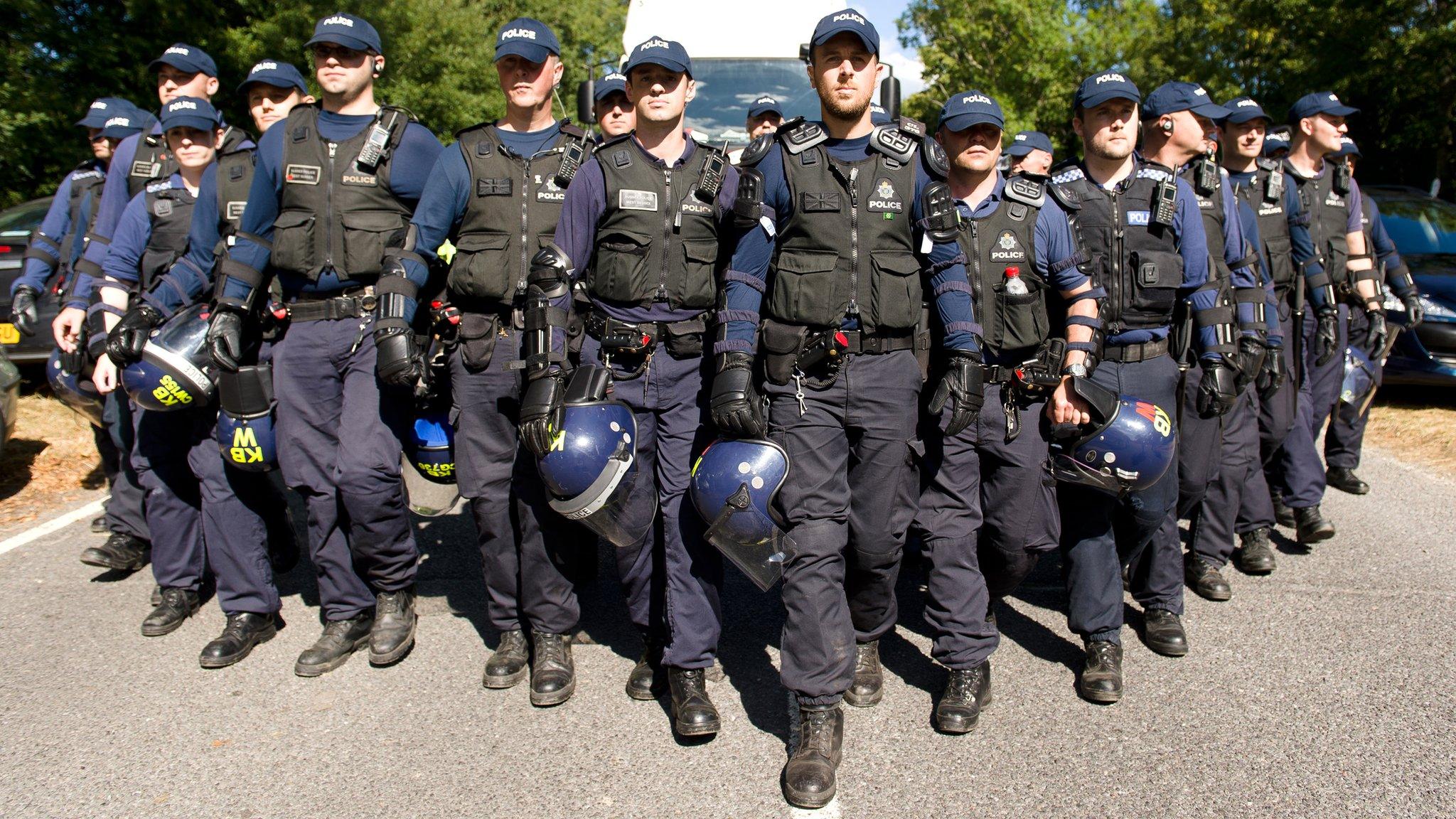Balcombe fracking protest police 'were caught off guard'
- Published
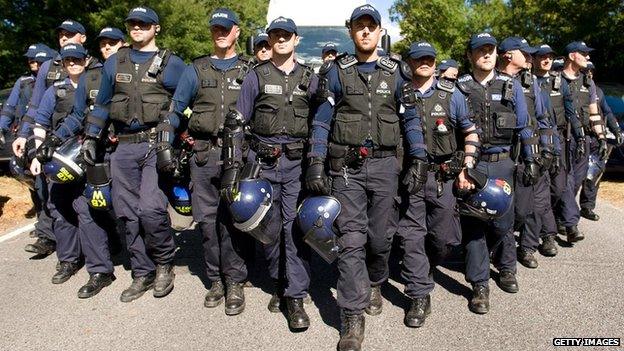
Police arrested dozens of people after anti-fracking protesters gathered at Balcombe
Anti-fracking protests in Balcombe took Sussex Police by surprise despite the force being warned disorder was likely, a review has found.
It was "caught off guard" because officers had failed to prepare for the Sussex demonstrations sufficiently, the report by Hertfordshire Constabulary and Essex Police said.
Hundreds of protesters gathered last year amid fears test-drilling at the site would lead to fracking.
Sussex Police have welcomed the report.
According to the report, which has been released through a Freedom of Information request, the force had known about the threat of disorder from May 2013 but did not do enough to prepare for it.
'Gravity of situation'
This meant that when protests escalated in July, the police were unable to respond sufficiently.
The report said policing had been "slow" with some officers lacking a "grasp of the gravity of the situation".
For example, it noted an unofficial leave policy running in the force at the time meant that there were periods when 50% of officers had been allowed to be away from work at the same time.
On making prosecutions, the report said the lack of planning had meant there had been an absence of clear charging guidelines and standards.
This had led to cases being taken to court which had not led to prosecutions having been discontinued upon judicial review.
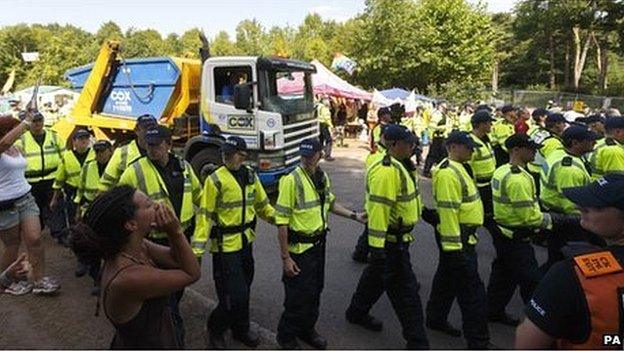
Police had to provide escorts as Cuadrilla vehicles arrived at the site
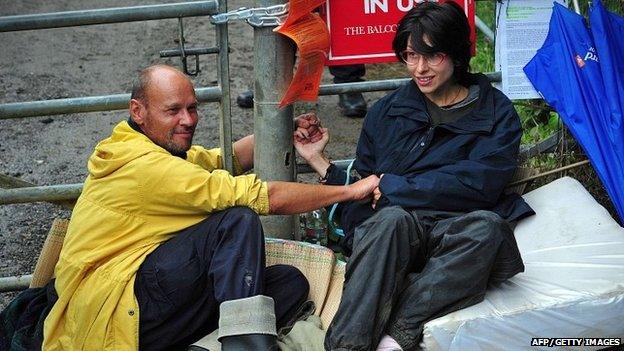
Some protesters glued themselves together during the protests against test-drilling by Cuadrilla
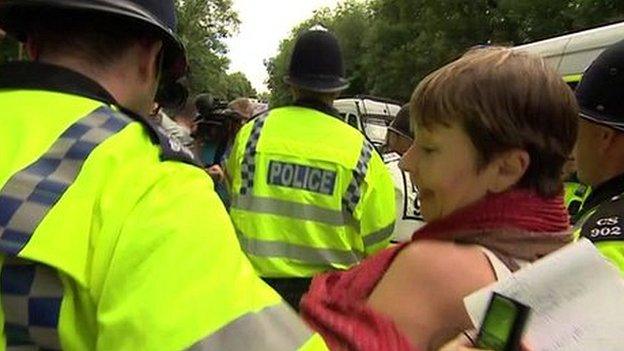
Green MP for Brighton Pavilion Caroline Lucas and her son were among those arrested
In conclusion, report authors recommended police should be more open with the public when faced with demonstrations and ensure the chain of command was clear to all.
They also called for a review of prosecution strategies in order to avoid unnecessary arrests.
The report did acknowledge the force had already learnt from some of its mistakes and improved its practices since last summer.
It also praised the force for liaising with Cuadrilla during the protests and found that the command structure headed by Ch Supt Tony Blaker did work appropriately as the disorder progressed.
Sussex Police has welcomed the recommendations made by the report and said it would apply them to the policing of similar events.
Assistant Chief Constable Steve Barry admitted the force "had been slow to turn intelligence into a plan with the necessary resources".
However, he said the scale and complexity of the protests had been "unprecedented" and occurred at "an extremely busy time for the force" when resources were required for events like Pride.
He added that the force had become aware of the size of the operation in July and had responded by using special constables and cancelling rest days to make "the best use of resources".
More than 100 people were arrested during the demonstrations at Balcombe against the test-drilling carried out by energy company Cuadrilla.
Brighton MP Caroline Lucas was among those who appeared at court accused of public order offences, although she was found not guilty.
Last week, protesters belonging to the Frack Free Balcombe Residents Association (FFBRA) started legal action against Cuadrilla and West Sussex County Council after permission was granted for the energy company to carry out further tests at the site.
- Published13 June 2014
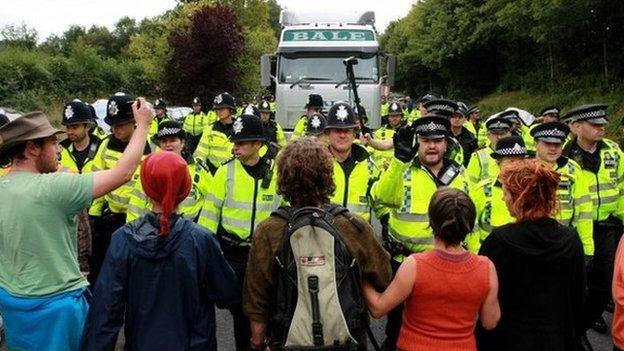
- Published17 April 2014
